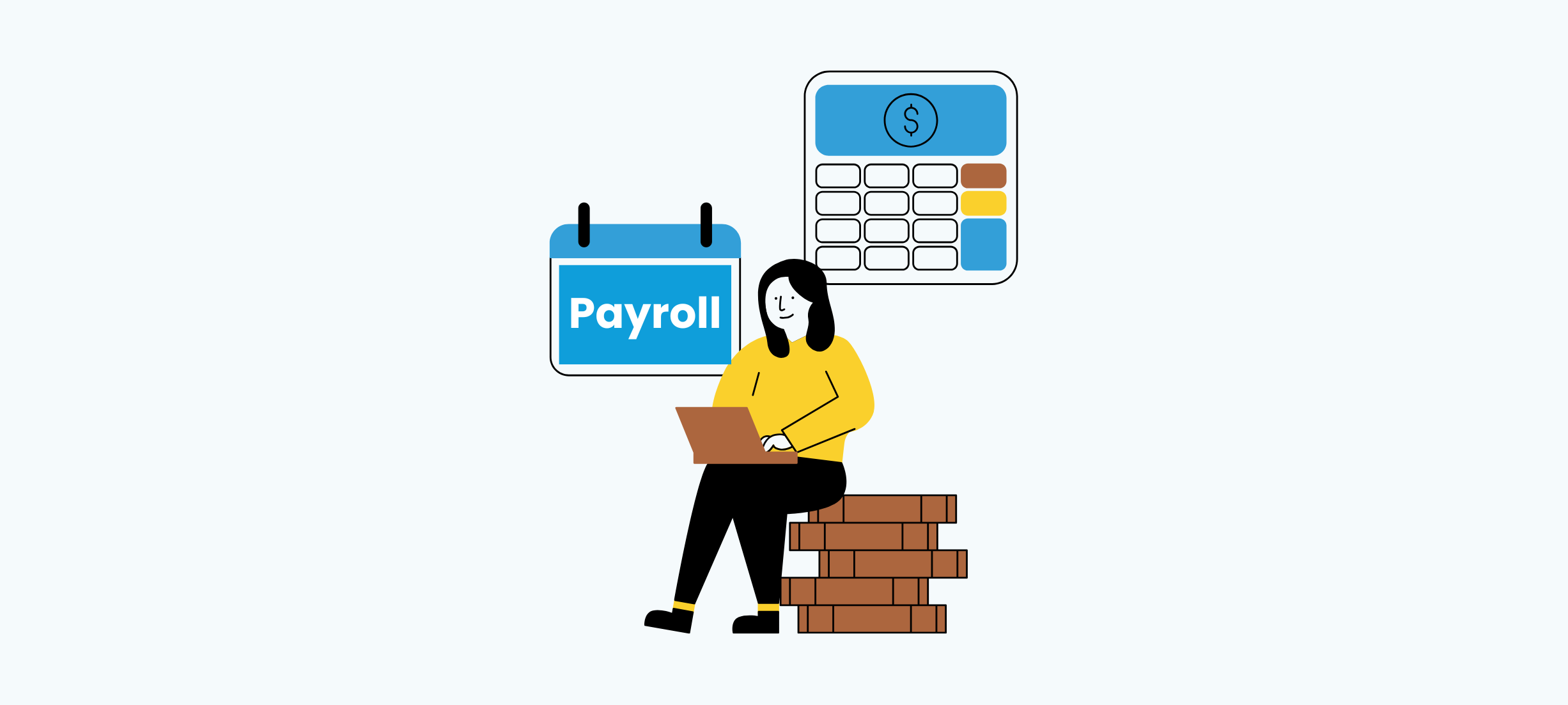Filing taxes can be stressful, and sometimes the deadline sneaks up on you. But don't worry, there's an option called a tax extension that can give you some extra breathing room.
What is filing extension?
Think of a filing extension like a permission slip from the IRS. It grants you an additional six months (until October 15th) to file your federal tax return. This can be incredibly helpful in various situations, such as:
- Missing important documents: If you're still waiting for tax forms from your employer, bank, or investment institutions, an extension can prevent a rushed and potentially inaccurate filing.
- Needing more time to calculate your tax liability: Tax situations can be complex, especially for individuals with multiple income sources, deductions, or credits. An extension allows you to ensure everything is calculated correctly and avoid any potential errors.
- Seeking professional help: If your tax situation is intricate, consulting a tax professional can be invaluable. An extension gives you extra time to work with a professional and ensures your return is filed accurately and efficiently.
However, it's crucial to understand that a filing extension only applies to the filing deadline, not the payment deadline. This means you are still obligated to estimate and pay any taxes you owe by the original deadline (typically April 15th). Failing to do so can result in penalties and interest charges.
Obtaining a filing extension is a straightforward process
Obtaining a tax filing extension is a relatively straightforward process. However, remember that filing an extension only gives you more time to file your return, not to pay any taxes owed. These taxes are still due by the original deadline.
Individuals
- If you need to file a tax extension, you'll need to complete Form 4868, Application for Automatic Extension of Time to File U.S. Individual Income Tax Return.
- Sole proprietors and single-member LLCs should also use Form 4868 as they report business income on their personal returns.
Businesses
- Most other businesses can utilize Form 7004, Application for Automatic Extension of Time to File Certain Business Tax Returns.
Both forms are available online for free on the IRS website or through various tax software programs. You can also submit them via mail, but online filing is generally faster and more secure.
Here are some additional points to remember
- Don't procrastinate: While an extension offers extra time, it's best to file it well before the original deadline to avoid any last-minute complications.
- Estimate your taxes accurately: When filing the extension form, you'll need to estimate your total tax liability and ensure you pay any outstanding balance by the original deadline. Underestimating can lead to penalties and interest charges later.
- Keep a copy of your confirmation: Once you've successfully filed your extension, retain a copy of the confirmation for your records.
It's important to note that not all states automatically accept IRS extension forms. Always check your state's specific requirements to ensure you're compliant with both federal and state tax filing deadlines.
Finally, remember that while a filing extension can be a valuable tool, it's not a substitute for responsible tax planning and timely payment of your tax obligations. By understanding the process, adhering to deadlines, and taking proactive measures, you can navigate tax season with greater ease and confidence.
How to submit tax extension?
There are three primary ways to file for an extension:
- Electronic Payment: This is the simplest and most recommended method. You can make a full or partial payment towards your estimated taxes electronically through various IRS options like the IRS Individual Online Account, Direct Pay, EFTPS, or even using a credit/debit card. Crucially, select the "extension" option during the payment process to automatically file the extension without needing a separate form.
- Form 4868: This is the official IRS form titled "Application for Automatic Extension of Time To File U.S. Individual Income Tax Return." You can file electronically through IRS e-file or by downloading, completing, and mailing a paper copy to the designated IRS address.
Additional points to remember
- No justification needed: You don't need to explain why you need an extension. Most requests are automatically granted, and the IRS will only contact you if there's an issue with your request.
- Free to File: Filing an extension itself is free. However, any interest or penalties on late payments will still accrue.
- Early Filing Recommended: Even though extensions grant you additional time, it's advisable to file your return as soon as possible to avoid last-minute complications and potential penalties for late filing.
Tax filing extensions for different taxpayers
- U.S. citizens and resident aliens abroad: If you are a U.S. citizen, resident alien residing overseas, or in the military on duty outside the U.S. on the regular due date, you automatically receive a 2-month extension to file and pay your taxes without needing to request one. However, interest will still accrue on any unpaid taxes after the original due date.
- C Corporations
- C corporations can file Form 7004 electronically to obtain a 6-month automatic extension to file their income tax return.
- This extension applies to both calendar-year corporations (ending December 31st) with a filing deadline of October 15th for the 2023 tax year and fiscal year corporations ending on June 30th with a filing deadline of March 15th (effective March 1, 2024).
- Important: Filing an extension only grants extra time to file, not to pay taxes owed. Estimated taxes are still due by the original deadline, and penalties and interest may apply for late payments.
- S Corporations
- S corporations also use Form 7004 to request a 6-month automatic extension, extending their filing deadline to September 16th for calendar-year corporations (ending December 31st) for the 2023 tax year.
- Similar to C corporations, filing an extension for S corporations only provides additional time to file the return, not to pay any taxes owed. Estimated taxes are still due by the original deadline, and penalties and interest may apply for late payments.
What do they mean when you owe taxes?
Many people associate tax extensions with getting more time to pay what they owe the government. However, the reality is slightly different, especially if you're facing a tax bill. Here's the lowdown on how tax extensions work in the context of owing taxes:
1. What an extension does
- Grants you extra time to file your return: This is the main benefit of an extension. If you need additional time to gather documents, consult with a tax professional, or complete the filing process, an extension provides flexibility.
- It does NOT extend the deadline to pay your taxes: This is a crucial point. Even if you file an extension, any taxes owed are still due by the original deadline, typically April 15th for most individuals.
2. Consequences of not paying by the deadline
- Penalties: The IRS charges a failure-to-pay penalty of 0.5% per month (up to 25%) on any unpaid balance. This penalty accrues from the original due date until the full amount is paid.
- Interest: You'll also be charged interest on the unpaid tax amount, accruing daily until you settle the debt.
3. Alternatives to consider
- Estimated payments: Making estimated payments throughout the year based on your expected tax liability can help minimize penalties and interest. These payments are due quarterly on specific dates set by the IRS.
- Short-term extension to pay: The IRS offers a short-term extension of up to 120 days to pay any outstanding taxes. However, interest will still accrue on the unpaid amount during this period.
- Installment agreement: If you're unable to pay the full amount within 120 days, you can request a formal installment agreement with the IRS. This allows you to spread out the payment over a longer period, typically up to 72 months. However, interest and potential late filing penalties may still apply.
Tax extensions and refunds
While filing an extension can be helpful when you need more time to complete your tax return, it's important to understand how it affects your potential refund. Here's what you need to know:
Myth: Filing an extension delays your refund.
Fact: Filing an extension does not delay your refund. The IRS processes refunds based on when your completed return is received, not whether you filed an extension.
Here's the breakdown:
- Filing an extension: This grants you six additional months (until October 15th for the previous year's taxes) to file your tax return.
- Receiving a refund: If your completed return shows you've overpaid taxes, you will receive a refund from the IRS regardless of whether you filed an extension.
Does the IRS Penalize You for Filing an Extension?
No, the IRS does not penalize you for filing a tax extension itself. Filing Form 4868, the standard extension form for individual income tax returns, is a free and straightforward process that grants you an additional six months to file your return, typically extending the deadline from April 15th to October 15th.
How BookkeeperLive can help you?
BookkeeperLive goes beyond just handling the paperwork. We offer personalized consultations to assess your specific tax situation and provide tailored guidance on the best approach for requesting an extension. Our dedicated team is committed to ensuring accuracy and compliance with tax regulations, giving you peace of mind during tax season.
Additionally, BookkeeperLive offers ongoing support throughout the extension filing process. Whether you have questions about documentation requirements, deadlines, or any other aspect of the process, our knowledgeable professionals are available to provide prompt assistance and clarification.
With BookkeeperLive by your side, filing for a tax extension becomes a straightforward and efficient process. Take advantage of our expertise and let us help you navigate the complexities of tax filing while minimizing stress and maximizing compliance.
FAQs
1. Do I need to file an extension?
An extension is necessary if you cannot file your federal return by the deadline, typically April 15th. It grants you an additional six months, extending the deadline to October 15th.
2. How do I file an extension?
You can file Form 4868 electronically through the IRS website (https://www.irs.gov/) or by mail. Most tax preparation software also allows you to file an extension directly within their platform.
3. Is there a fee to file an extension?
No, filing Form 4868 is free.
4. Does filing an extension give me more time to pay my taxes?
No, filing an extension only gives you more time to file your return, not to pay your taxes. Any taxes owed are still due by the original deadline (typically April 15th). Failing to pay by this date will result in penalties and interest on the unpaid amount.
5. Can I file an extension for my state taxes?
Not necessarily. While most states automatically grant an extension if you have a federal extension, some states require a separate filing. Check with your state's department of revenue or tax authority for specific information.
6. Can I file an extension if I expect a refund?
Yes, you can still file an extension even if you expect a tax refund. However, filing on time is recommended to receive your refund sooner.





